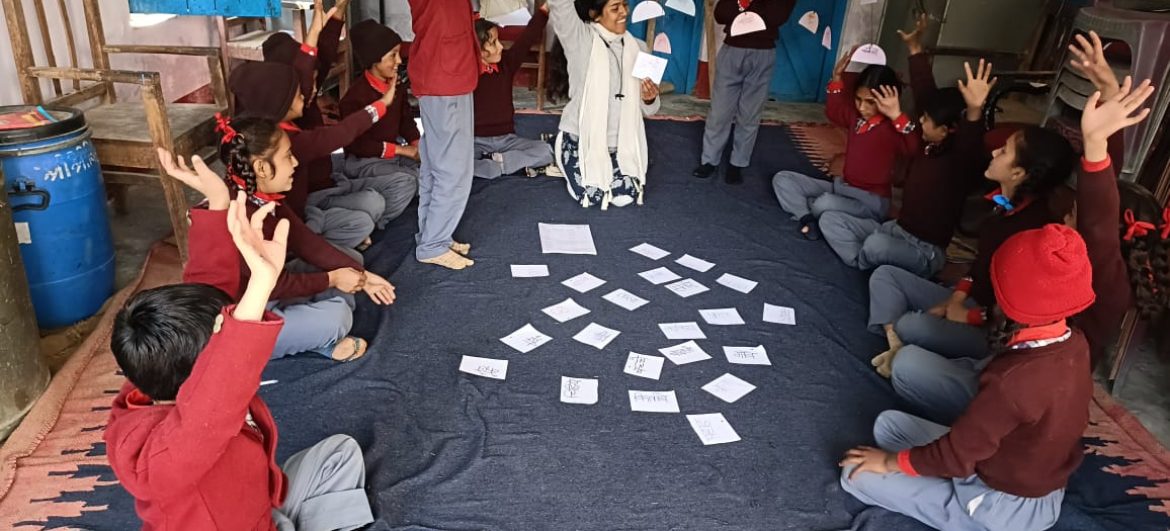Quis autem velum iure reprehe nderit. Lorem ipsum dolor sit nulla or narjusto laoreet onse ctetur adipisci.

Space for Nurturing Creativity (SNC)
About the organization
Space for Nurturing Creativity, Shyamavan, was founded in 2009 and subsequently registered as a society in April 2011, with the mission of fostering future generations of mindful, sensitive and creative individuals, capable of living harmoniously and self-sustainably in collaboration with each other as well as with nature. The center resides in the small village of Khumera, in Rudraprayag District, Uttarakhand.
Space for Nurturing Creativity (SNC) primarily focuses on education, livelihood, and disaster management. Our grassroots rural-based programs lay emphasis on empowerment. This is done with a view to foster a harmonious, mindful, and collaborative way of living. Participants are encouraged through hands-on residential holistic education to understand the significance of self-sustainable development and are also exposed to various community initiatives throughout the surroundings by way of participation.
Organization’s approach
Commune-bred team synergy and dedication to work lie at the heart of SNC’s ethos. The organization has grown through inter and intra-team coordination. One team is responsible for education-centric activity and the other team for livelihood-related actions. For disaster relief work the SNC team and its volunteers always work together. Over a period, we have nurtured and jelled a dedicated workforce of volunteers who are always eager and attuned to work in an immediate relief action scenario.
Partner updates
Most of the work was accomplished under the school partnership program in Kedarnath Valley. As part of our work on Education, we are working directly with 12 different government primary school teachers and students, to improve education standards through our initiatives such as activity-based learning, mobile libraries, and improving language learning.
Individualized learning was attempted through creating worksheets specifically made to meet the strengths and weaknesses of the individual children. Children showed great interest in the material. So much so that they remained interested even when the teachers were not around. Government teachers also demonstrated a high level of involvement. They continue to use our material.
Creating opportunities for children to engage in the mobile library through various activities such as Book Talk fuelled their love for reading and created the habit of reading books. We learned that merely providing books is not enough; the interest in reading has to be simultaneously generated.
Residential workshops allowed children from different backgrounds especially different castes to interact, play, and engage with each other, hence overcoming the caste and gender-based barriers.
Practicing mindfulness is an integral part of our work. We have observed that through mindful activities children remain focused and learn better.
Challenges
In the time following the lockdown, all students were promoted to two grades above their pre-lockdown grade level. However, they were unable to cope with the education in the new grades. This put additional pressure on our team and the teachers to bring them up to the mark with their existing grades and complete their existing syllabus.
It was challenging to encourage the parents to be more involved in their children’s studies. They show very little interest and need constant persuasion. Reaching schools in remote and distant villages is challenging due to the lack of public transport in this region.
We could not conduct the residential workshop of children from all 12 schools in SNC on the same days due to a lack of adequate space to accommodate 120 students.
Some of the capacity-building workshops for SNC facilitators are in regions that are too far from our location. Getting parents’ consent to attend these workshops and traveling long distances is a challenge faced by some of our facilitators.
Plan for the next 1-3 years
We will continue the school partnership program in the 12 government schools. The focus will be on improving education standards, especially in language learning. The primary focus of SNC’s engagements in the next 3 years will be on developing the linguistic capabilities of learners from selected schools in collaboration with teachers at those schools. Languages here mean Hindi and English both. We will conduct a variety of engagements with teachers and learners at school levels as well as in the form of workshops, and exposure visits.
